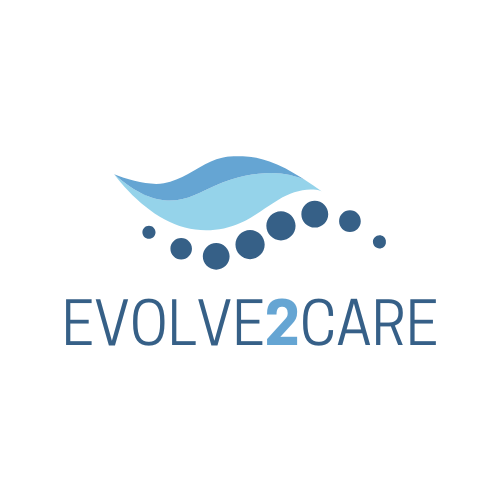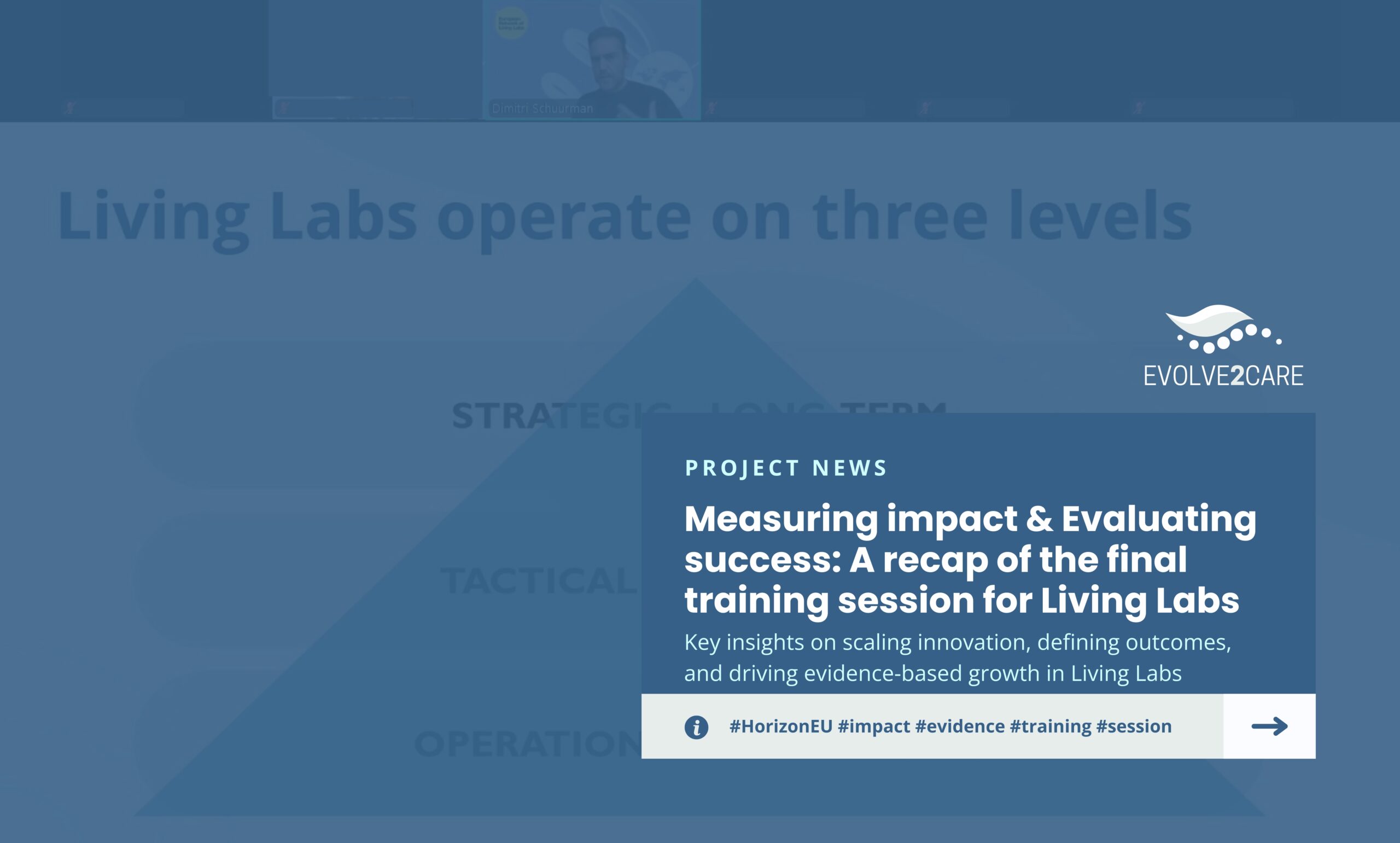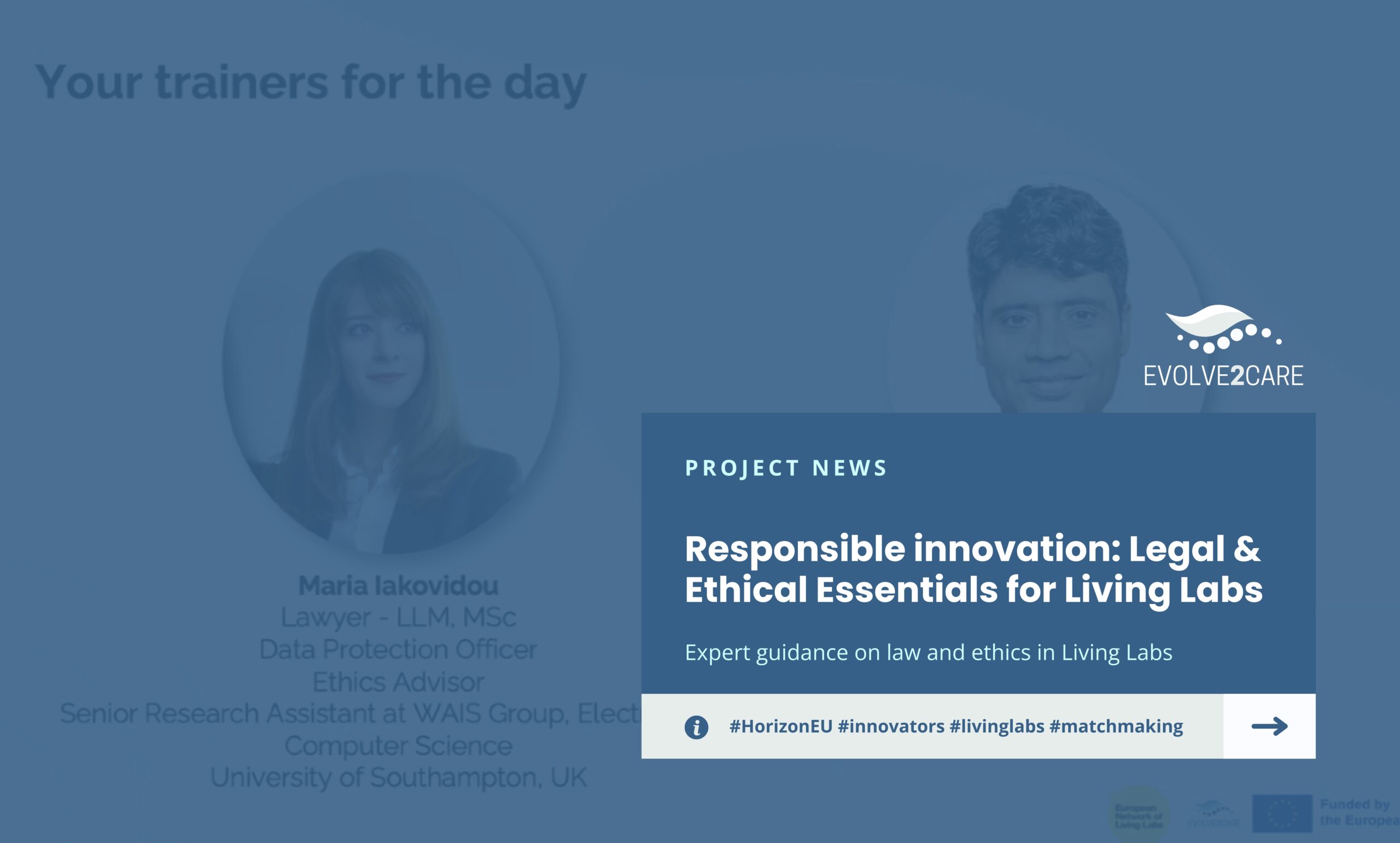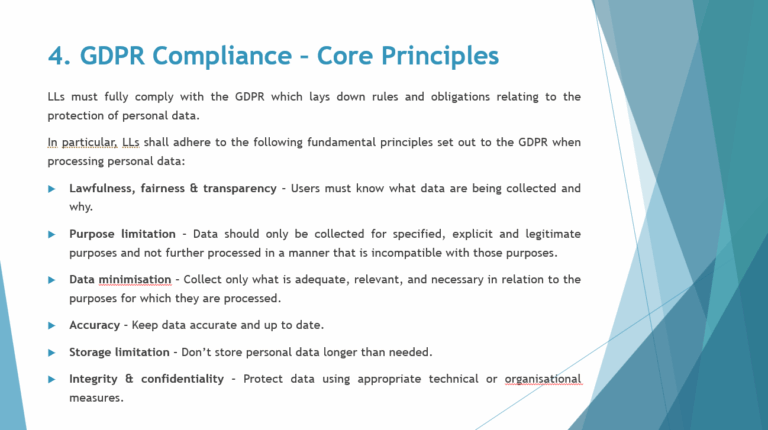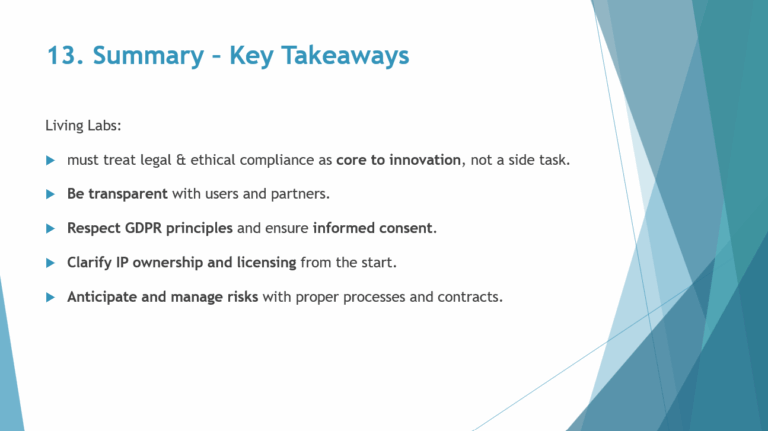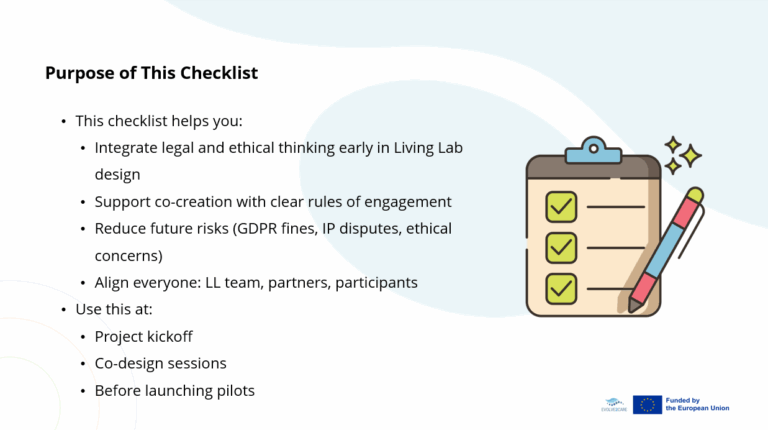The sixth and final webinar of the EVOLVE2CARE Training Series for Living Labs took place on 19 September 2025, with a focus on measuring impact and scaling pilots. This session, titled “Measuring Impact & Evaluating Success”, was led by Prof. Dr. Dimitri Schuurman, Senior Research Strategist at the European Network of Living Labs (ENoLL).
Key takeaways from the session
Understanding Living Lab characteristics
Prof. Schuurman emphasized the core elements that define a Living Lab, which include:
- Multi-stakeholder: Living Labs engage a diverse group of stakeholders, including researchers, businesses, governments, and end-users. This broad collaboration ensures that innovation is inclusive and relevant to all parties involved.
- Active user involvement: Ensuring the continuous feedback of users throughout the innovation process, from idea generation to final implementation.
- Orchestration: Orchestration refers to the strategic coordination of all actors in the Living Lab. By aligning the interests and expertise of different stakeholders, Living Labs facilitate effective collaboration and drive the innovation process forward.
- Co-Creation: Involving all relevant stakeholders in the design and development processes.
- Real-Life Setting: Unlike traditional laboratories, Living Labs test solutions in real environments, which increases the relevance and applicability of the results.
- Multi-Method Approach: Each Living Lab adapts its methods based on the problem and stakeholders involved, blending exploratory and confirmatory approaches.
Impact Models and Measuring Outcomes
One of the central frameworks discussed during the session was the Impact Model. This model is essential for understanding how to track the effectiveness of Living Labs over time. It incorporates the Theory of Change, which categorizes results into:
- Input: Resources and efforts that go into the project.
- Process: The activities and interactions that drive the project forward.
- Output (Short-Term): Direct deliverables and tangible results produced immediately after implementation.
- Outcome (Medium-Term): The effects of those outputs on the targeted stakeholders or systems.
- Impact (Long-Term): The ultimate, lasting change or influence of the project, contributing to broader societal goals.
This model helps Living Labs track not just the immediate outputs, but also the long-term impacts, offering a roadmap for continuous improvement.
Living Lab Assessment Method
To effectively evaluate the impact of Living Lab projects, the Living Lab Assessment Method was introduced. It is designed to measure the effectiveness across six key areas:
- Skill Capacity Enhancement
- Instrumental Capacity Enhancement
- Network Capacity Enhancement
- Knowledge Capacity Enhancement
- Agenda Setting
- Real Solution Generation
These indicators are critical for understanding how well a Living Lab is contributing to innovation and systemic change in its targeted sector.
A heartfelt thank you to all participants who joined us for the six-part EVOLVE2CARE Training Program for Living Labs led by ENoLL from June to September 2025. Your engagement and contributions made this series a great success. In the coming weeks, all the session recordings will be made available at the ENoLL Living Labbers Academy, so you can revisit the valuable insights shared throughout the program. We look forward to continuing the journey of innovation with you!
